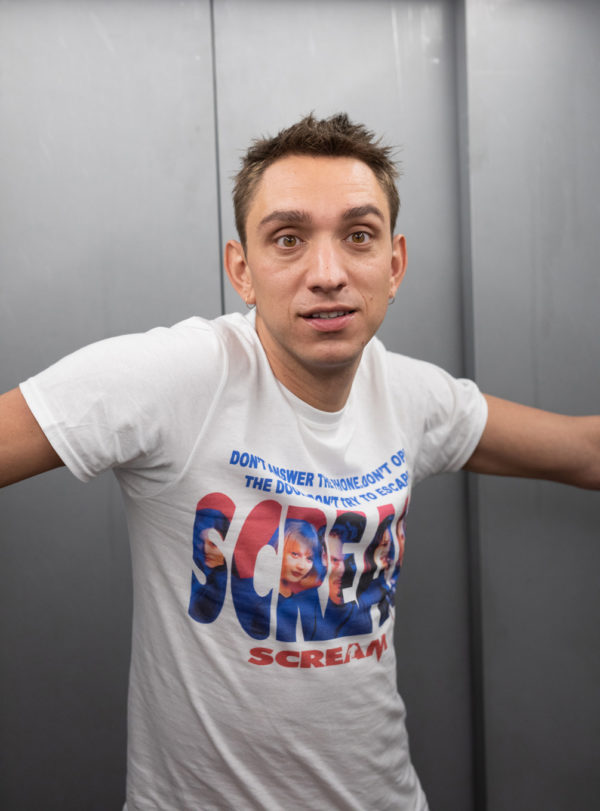
PHOTOGRAPHY BY WOLFGANG TILLMANS
Oliver Sim
Oliver Sim is best known as one third of the xx, a band he formed with schoolmates Romy Madley Croft and Jamie Smith when they were in their teens, living in Wandsworth, London. Their stripped back musical style and lovelorn lyrics complemented by Oliver and Romy’s distinctive vocals made them critical darlings. Their first album released in 2009 became a commercial hit, reaching number three on the U.K. album charts. Two more albums followed along with years of touring. While Romy and Oliver were both open about their sexuality, Oliver never used male pronouns in lyrics to suggest same-sex desire until his recent solo debut, Hideous Bastard (2022). In the album he ventures into even more revealing territory, declaring in the last line of the song “Hideous” that he has been living with H.I.V. since he was 17. This admission is one of many on the album, which draws inspiration from horror films, and while pondering deeper themes is still joyous and musically unbridled. Produced by bandmate Jamie xx, the album sets a high bar for all involved. We chatted with Oliver this May, right before he was about to leave for a scheduled U.S. tour that was unfortunately delayed because of a covid outbreak in his band. Oliver was open, friendly, and more than ready to kick off this new chapter of his life.
How are you doing? I’m good. I’ve just been in the countryside visiting my bandmate Romy.
Oh, nice. How was the shoot with Wolfgang [Tillmans who photographed Oliver for this story]? Oh my God. It was good. I was quite nervous about meeting him. Because I’ve been speaking to him off and on for a little bit, and I’m just like a big fan of his work. He’s very funny and warm. Um, which I think [surprised me because] maybe in my head I was like painting a picture of a very German person. He was great. I loved him.
Let’s just jump in. Where did you grow up and where do you live now? I grew up in London. I’m a city kid. I grew up in southwest London in the same place as Romy and Jamie, my bandmates. I met Romy at nursery school. We went to primary school and secondary school together. Then we met Jamie in Wandsworth when we were 11 years old. Now I live on the other side of London. I live in East Hackney, where I’ve been for ten years, with gaps of two years of touring.
The xx released their last album in 2017. So what have you gotten up to since then? We toured that record for two years. Then I came home and crashed. To be honest, coming home from a tour is a real crash. I love touring, but it is not reality. It’s like you have an overbearing tour manager, who’s basically your parent who feeds you, and tells you where you need to be and you are just constantly surrounded by people. So I came home, had a little bit of a crash, which was expected.
How long did that last, your crash after the tour? How long does it take to get back to normal? That initial crash is a few weeks, but to re-acclimatize and find my feet takes a little longer. We got back in 2018, and I started working on this record quite soon after, around the end of 2018, or the beginning of 2019. It’s been a really leisurely process making this album — like starting it, then taking a step back for a little bit, then going back in. Obviously Covid, Miss Rona, threw a spanner in the works.
Are you the kind of musician who likes to create a lot of songs and cut it down or do you have a very clear idea about what you want? I have friends that like to write a song a day. And it’s unrelatable. I am the complete opposite. There are songs on this record that did happen in a single day. But the majority of them, it was a rewarding slog [Laughs].
It was a labor of love? A labor of love. That’s a nice way of putting it. The words take me the longest and so I really take my time with lyrics before I even make stuff in the studio.
So did you write the whole album before you recorded it? Are you writing before you even get anywhere near a recording studio? I am. No song is finished. There were some songs I wrote in the room, but my notes app on my phone is full of — I hope no one ever gets into my phone, not even talking about photos, just my notes.
Your new album Hideous Bastard almost feels like a musical. There’s this growth and arc to it. It’s a real story. Was that something you intentionally conceptualized beforehand or did that just come out naturally as you started creating the work? It’s funny you say musical because when I started making this record, I was with my ex-boyfriend, who was very into musical theater [Laughs]. But I don’t think I had a story in mind. It was literally what I was going through at that time, being very much aware of my shame, and a lot of fear, and just learning how best to cope. So I think the story is literally just my past few years.
So those emotions were what you were processing as you created the album? I was in it, yeah. I’ve been deep in therapy and without sounding, like, too much, but this kind of was like an extension of the therapy. I’ve become a real believer that the best antidote to fear and shame is sharing it. My past antidote to those feelings was pride, like pride and celebration, which I think are great tools, but they don’t necessarily work on their own because it’s like when I’m trying to present as having a lot of pride and, and celebrating myself, I’m often just burying some of the stuff quite deep down and those feelings of fear and shame are like mushrooms. They just grow in the dark. So I kind of came kicking and screaming to it, but I’ve become a believer that I just need to bring some of this stuff to the surface, and I’ve slowly and slowly experienced a lot more freedom from it all.
There’s a lot of reckoning with one’s self-worth, self-perception, and self-misperceptions on the album. On the first song “Hideous” you end the song by sharing that you have been H.I.V.-positive since you were 17. Was it cathartic to write these songs and share them with the world? On Monday I will release “Hideous” and I feel scared. I feel really scared. This record was about fear, and it was about shame, and I’d been circling around probably the thing that caused me the most shame, which is my [H.I.V.] status. I put it in a song, and I was like, “right, I’m just gonna throw it out to the world.” I played it to my mom, and my mom, being protective, gave me some of the best advice ever, which was, “This seems a bit drastic. How about as a first step, you start having conversations with people in your life.” Because there are some people I hadn’t told, or some people I maybe had told once and then put like an invisible barrier around it, like, we don’t talk about it. So I spent the past two years having those conversations, and I have done a lot of healing. It doesn’t feel as heavy as it used to. I feel like I’ve done the work. It doesn’t feel like a drastic thing now for me to put it in a song and put it out in the world. I’ve come a long way. I have already put out “Fruit,” the first song that I’ve used a male pronoun in, which might seem small, but was a big thing for me.
“Hideous” is a beautiful song, and it’s such a good opener to the album because it really does set the stage for what’s to come. It’s the start of an arc that ends with Run the Credits, which is full of abandon. There’s a release that happens by that last song, which is very contagious and enjoyable. Can you talk about the structure of the album and that journey from start to finish? It’s funny when I talk about the record without playing the music to people. People think it will be dark brooding, like woe is me. Like I’m such a tortured soul. And also like, if I hear artists talking about their craft for too long, I find that such a boner killer. It takes away so much of the mystery and romanticism behind it. This record for me, though it is about fear and shame, there are [other] themes. It has a lot of joy and it has a lot of humor. And the whole experience of making it has been joyous. And celebration is the opposite of shame for me. So it does feel very joyous.
While you do tackle subjects that are difficult, it is full of celebration. It feels like a very free album like you took off the restraints. A lot of The xx’s music is intentionally pared back in a beautiful way. And this one feels very unrestrained and bigger. Was that an intentional choice? It was not necessarily. In the beginning of making this record, I had an identity crisis. I was like, “Who the fuck am I if I’m not one third of this band?” Yeah. And the band does have a strong DNA and we have a set way of working. Without that, like, “What do I sound like? What do I write about?” But I ended up having a really good time because anything was up for grabs. I did try lots of stuff. And there was a lot of falling into things that I realized I love.
Like there’s a lot of voices going on. There’s a lot of harmonies — I’ve sampled a lot of the Beach Boys’ voices and I’ve used my voice. That’s not something we ever did in the band because we wanted to play everything [live] exactly as [it is] on the record. And without that rule, I was just like, well, let’s give this a go. I’ve always loved barber shop and just like all-male groups, like the Beach Boys or like the Flamingos, because there is something so masculine about it, but also there’s something very queer and romantic about men harmonizing together.
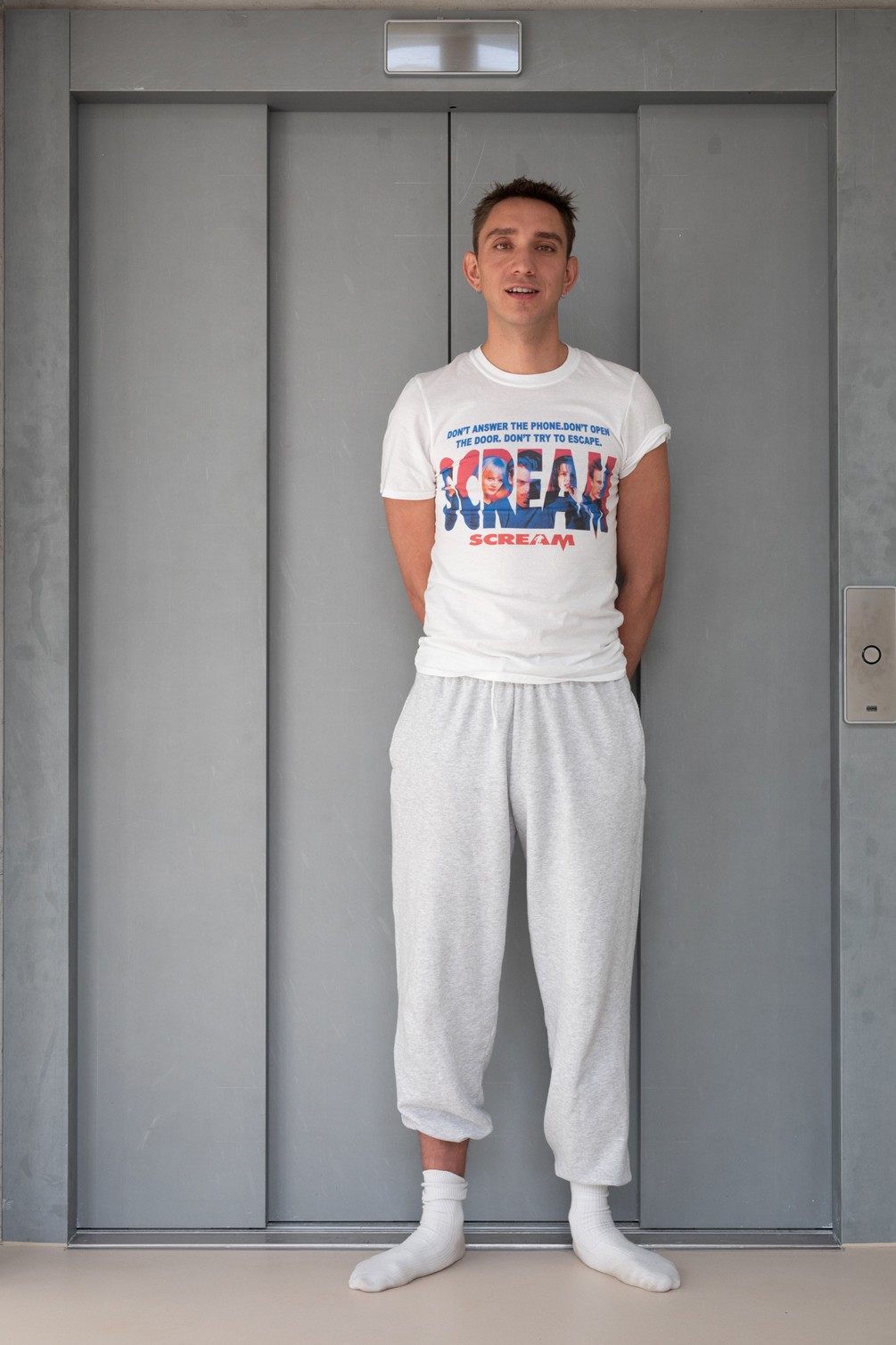
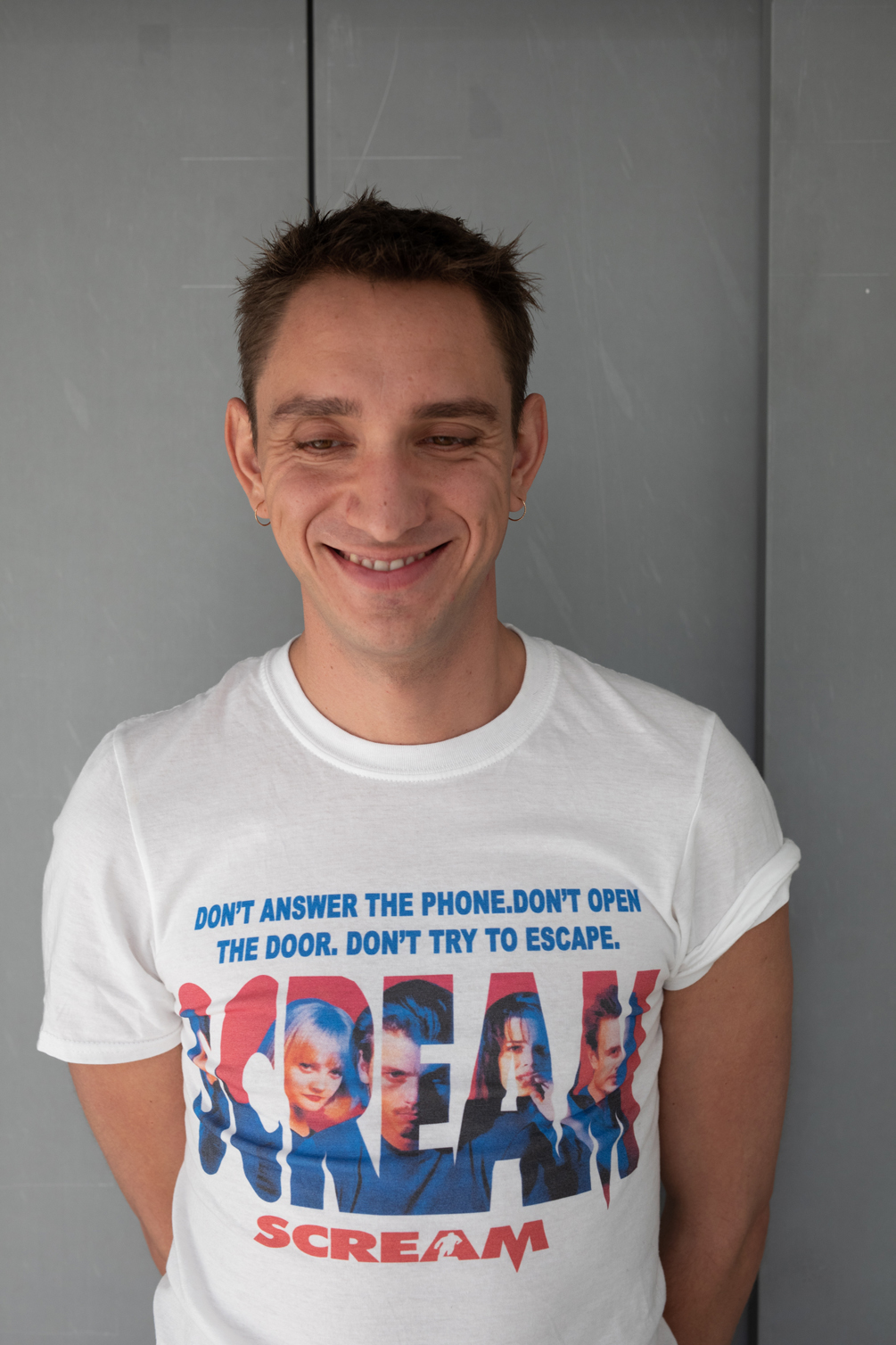
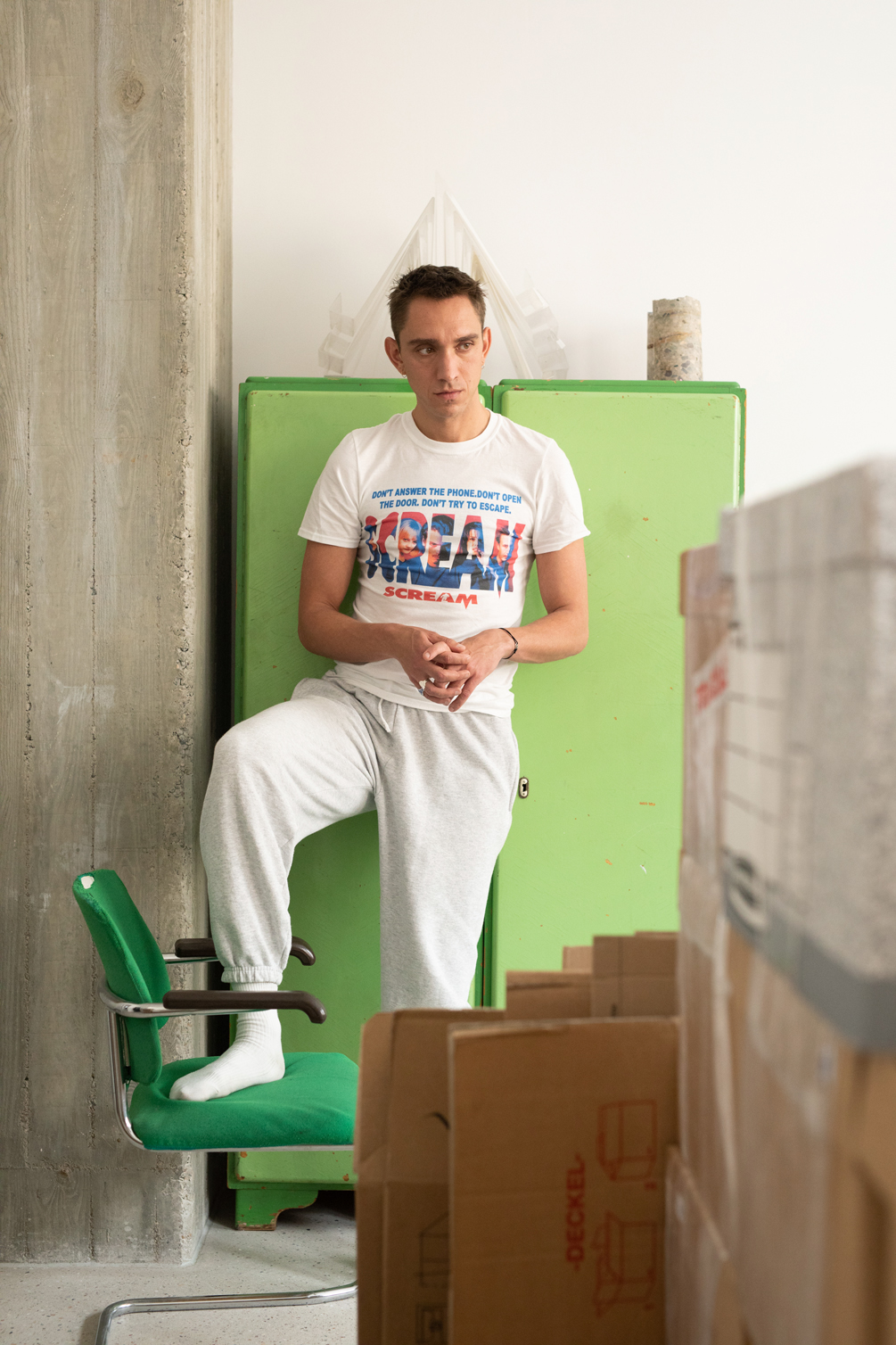
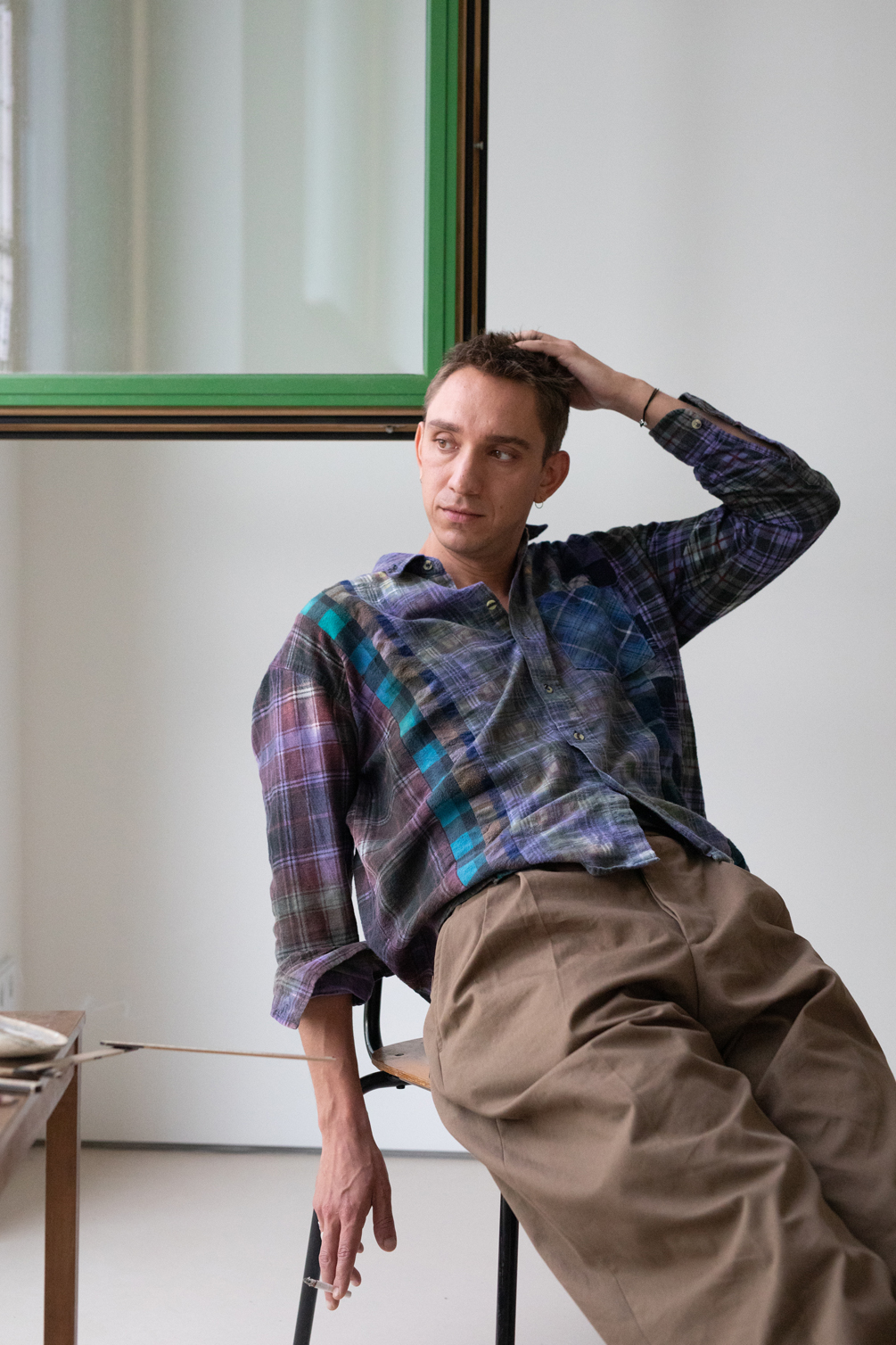
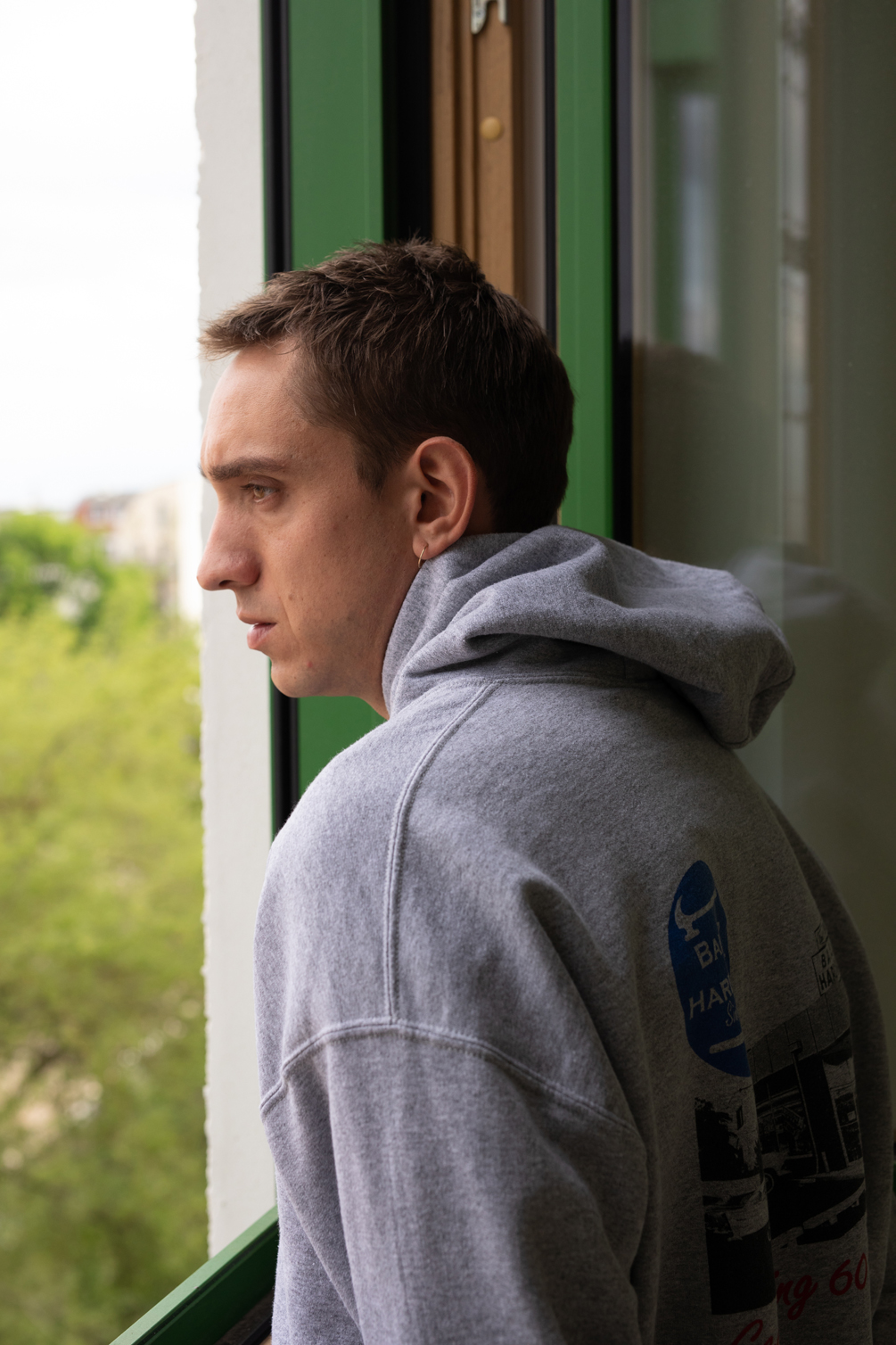
So Jamie xx worked on a few of the songs or the whole album? The whole album. I worked with other producers and some other songwriters, which was great. And I learned a lot, but Jamie ended up producing the whole record.
I’m assuming Romy’s heard it by now. What was her reaction? I’ve kept her in the loop the whole way through because she knows me best, and she didn’t work on it so she was able to give much needed feedback. Romy is my sister. I love her. I celebrate her. I support her. And I feel deeply competitive sometimes.
Does that competitiveness help to push you? It’s a good source of energy. Everything in my life I’ve done side-by-side with her — kindergarten, primary school, secondary school, college, our career together. So she would play me bits of music, and I’d be like, “That is really good. Let me just go…[Laughs].” And she’s given me great feedback the whole way.
What kind of feedback does she give you? She can be cutting. She’s spent time in L.A. in the pop machine so she can be like, “get rid of that part, get rid of that part. That part maybe gets a bit boring and just like rearrange,” and be quite savage, but in a very needed way because the music she’s making right now could not be more different from mine. So I think what we have brought to each other’s music has been much needed.
Can you talk about your Apple Music radio show Interludes with The xx? How’s that been? It’s been really fun. I think it’s fun to do something within the band, but individual. Because one thing that I feel like is on our agenda as a band is just forming our own identities. There was a whole analogy of like the Marvel cinematic universe, like the Avengers have a big event film, which is the next xx album. Before that there are all of our own individual films. Interludes was like that because all three of us have very different tastes. Like Jamie’s gone for summer bangers. I’ve gone for horror. And Romy hasn’t come out yet, but she’s doing something very different as well. And I’ve always quite enjoyed the whole [process of] recording a radio show and asking friends to call in.
In terms of inspiration, two names came to mind when I was listening to the album, Leonard Cohen and Roísín Murphy. Are you fans of either? I’ve grown up with Leonard Cohen’s voice in my house and Roísín Murphy is one of my favorite people in the world. Roísín Murphy and David Byrne, I think are made from the same stuff.
That was the third name I was gonna mention, but I kept it to two. I love them both so much because they are innovative and they’re cool, but everything they do has a sense of humor. Ugh. I love them. I love them so much. And I had to go on Instagram the other day and delete all my messages to Roísín Murphy because she’s never read them. And I was like, if she ever went on Instagram, it’s just like… I think there were like 13.
Oh that’s funny. I don’t know if she’s the most Instagram-y person. This album has a lot of themes of horror and monsters that also populate the music videos. What is the parallel between horror and monsters and these personal stories you’re telling in the songs? Horror’s been a love of mine for years, and it’s not something I’ve ever really been able to show in the band because it’s not really shared with Romy and Jamie. I realized how I wanted to present this record long before I was anywhere near finishing it. So I tried to bring in, even sonically, some of those themes, like synth drones that you hear in horror records and bring them into the record and into the writing. I think on paper it doesn’t make sense that I like horror because I’m quite a fearful person, but I don’t go to horror to feel scared. It doesn’t scare me necessarily. A lot of my fears aren’t monsters or ghosts, they’re a lot more based at home, they’re about relationships or loneliness. If I hear stuff that I sense is overly earnest, and if it’s shouting at me, “this is honest,” “this is me at my worst and realist and stripped back,” my instant reaction is just like, “this is so insincere.” So I think leaning into horror just gave a level of fantasy.
In the last song, “Run The Credits,” there’s this line “even Romeo dies in the final scene.” Can you talk about what that means to you? That whole song is so much of my childhood love of film and television, but really having to dig because the mold of how most stories went didn’t apply to me. I didn’t identify with them. Loads of the characters I identified with growing up were women. Characters like Buffy The Vampire Slayer or Sigourney Weaver in Alien, women that were sexy and had that femininity, but were still angry and pissed off and powerful. That’s the combination of things I wanted to be. I would identify with the monsters or the villains in films that I saw. So like, I think there are characters like Norman Bates or even like Patrick Batman and Hannibal Lecter who are repressed homosexuals. And there was something about them that was villainized, but also just like deadly and vicious, which felt empowering to me at that time, because [being gay] was something that I thought was making me more fragile and weak. The fact it was deadly was quite enticing to me.
You also say in “Run The Credits,” “Disney princess, my God, I hate them.” I hate them. It’s funny. It’s like the football boys at school. Yeah. I hated them. I was never invited to be part of their crowd. I didn’t wanna be part of their crowd, but it’s strange because it’s like, “Why am I gravitating towards these people?”
In terms of your relationship with Romy, being both queer and not being included, were these the things that pushed you together and pushed you guys to make music at that time? We met when we were 3 years old. I think we had assumed our parents had pushed us together, but it was the other way around, like we found one another and therefore our parents became friends. We started going out super early at like 15 years old to clubs and gigs in London and hanging out with people older than us.
Did you get into any trouble? Yes. I look back at that time now and I’m like, I was a child. At that time I felt incredibly proud. And even into my twenties, I felt quite proud that I was like out there doing stuff. I was a kid but it was a fun time. I did get in trouble, but I enjoyed myself. There used to be a really good gay club, behind Old Court Road called Ghetto. It got demolished years ago. We used to go to Ghetto or Trash Palace on a Thursday and then go to school on Friday morning, turning up to PE a little bit drunk.
I read somewhere that the first xx album you were writing about relationships that hadn’t happened. That were more fantasy. Were you dating in high school? The first boyfriend I got, I was 17. But the ratio of how much time I actually spent with that person compared to how much I went places with them in my head — at that age I could have entire relationships with somebody that literally could have just said hello to me. I had a boyfriend. But a lot of what I was writing about was just excitement about falling in love and what that would look like. And I think Romy had a lot more experience than I did. She was writing from a place of experience. I was writing from a place of excitement.
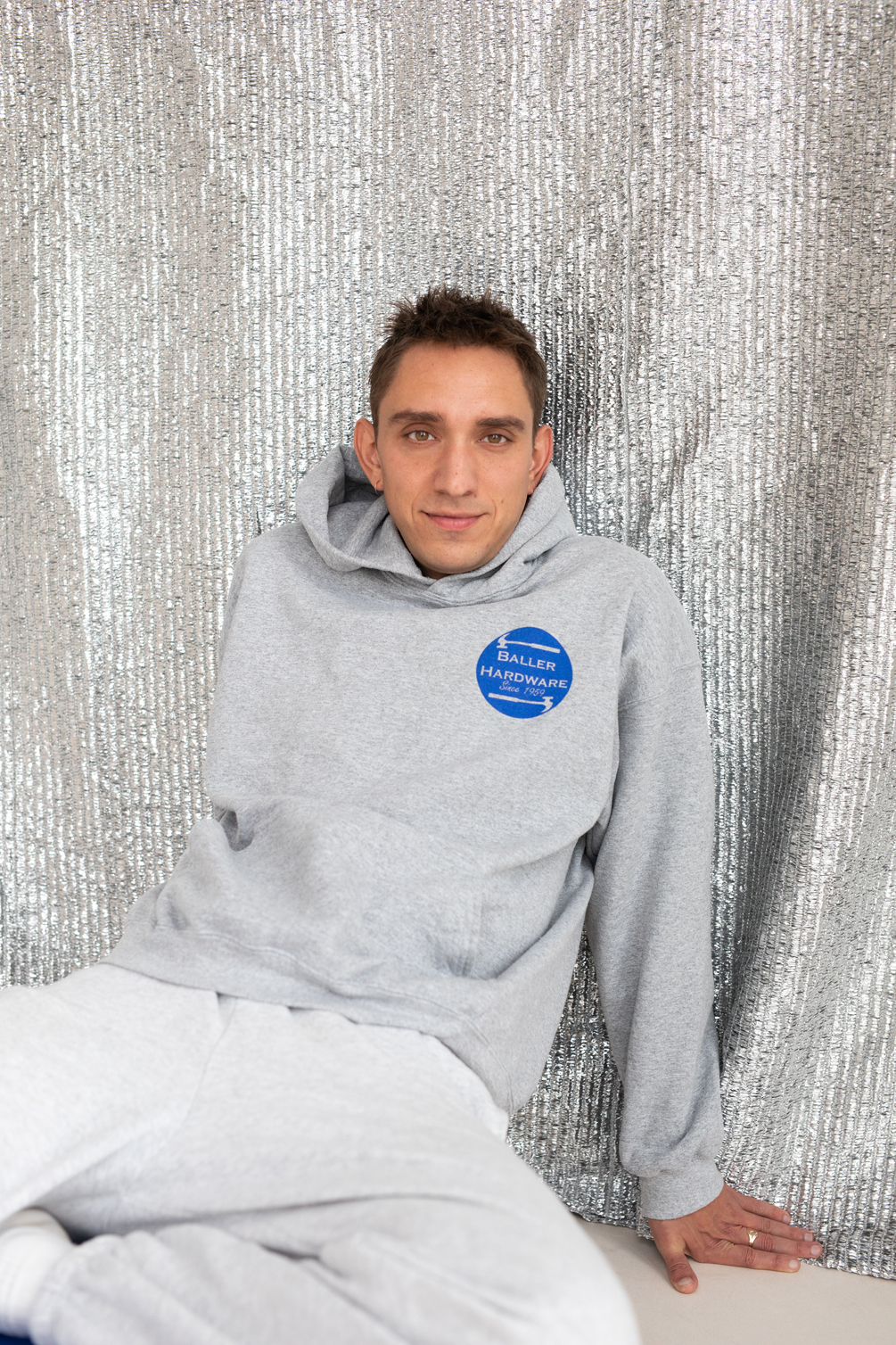
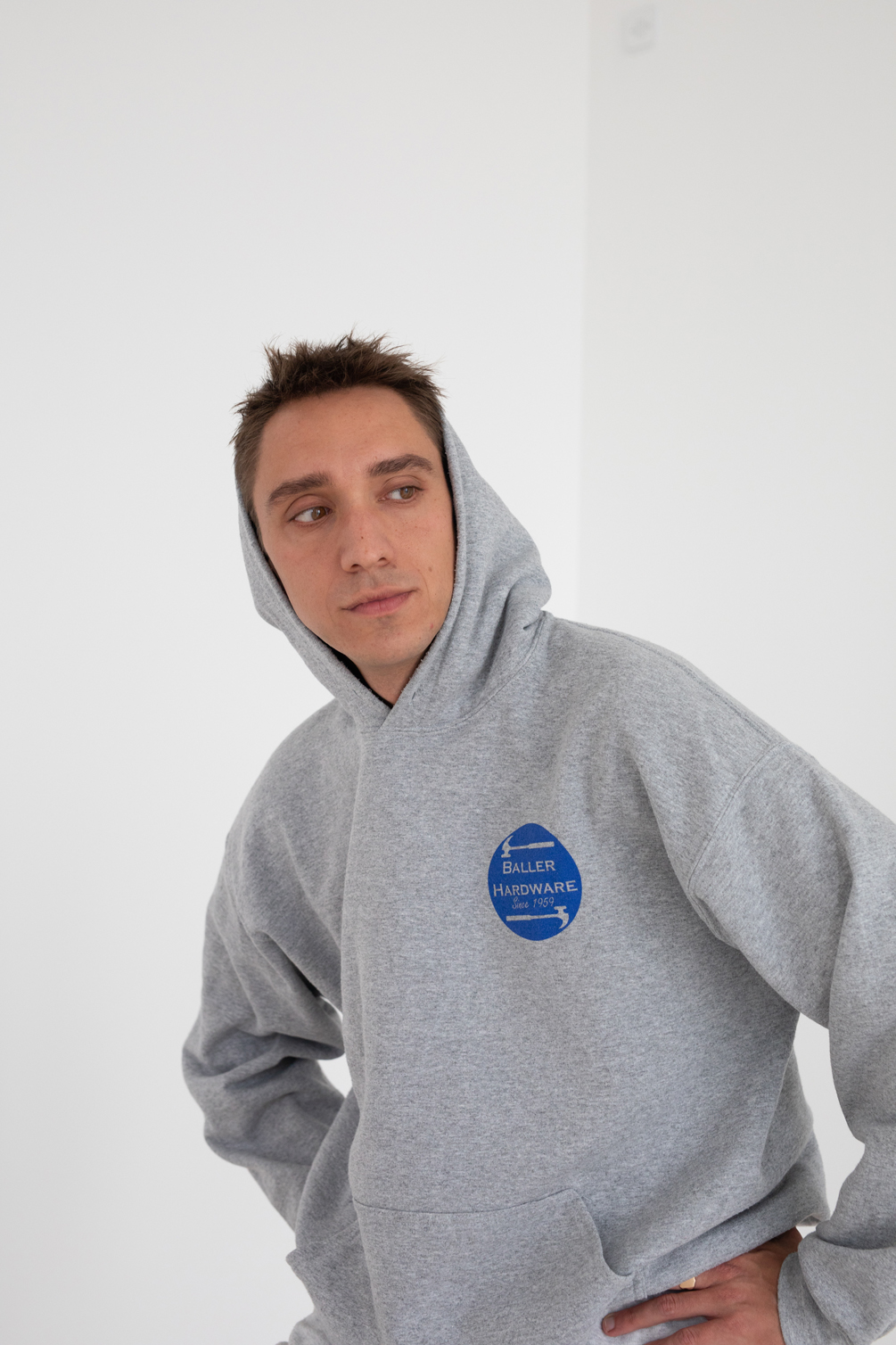
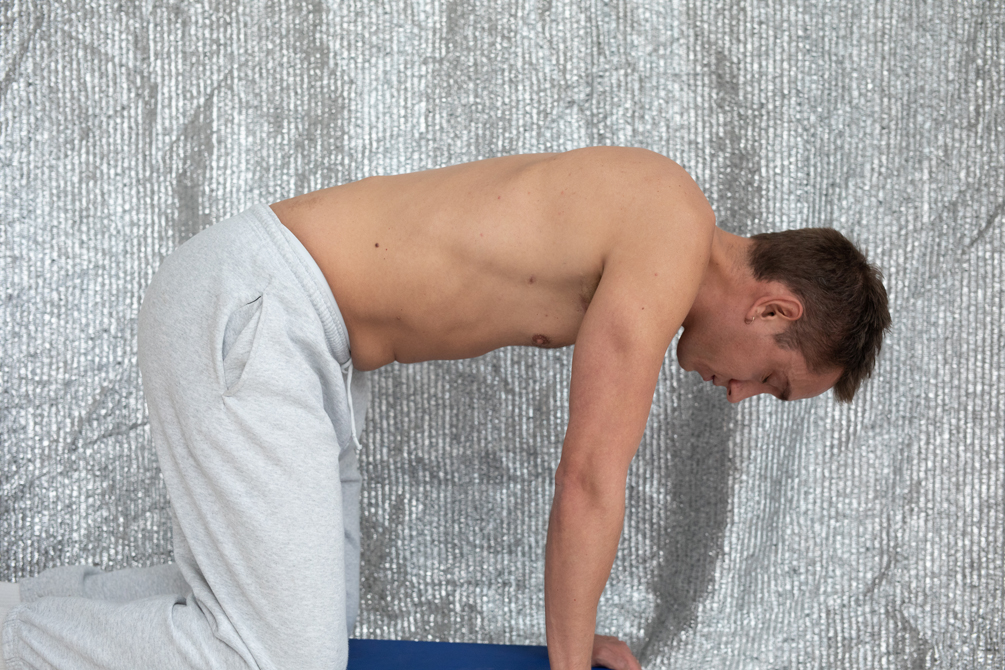
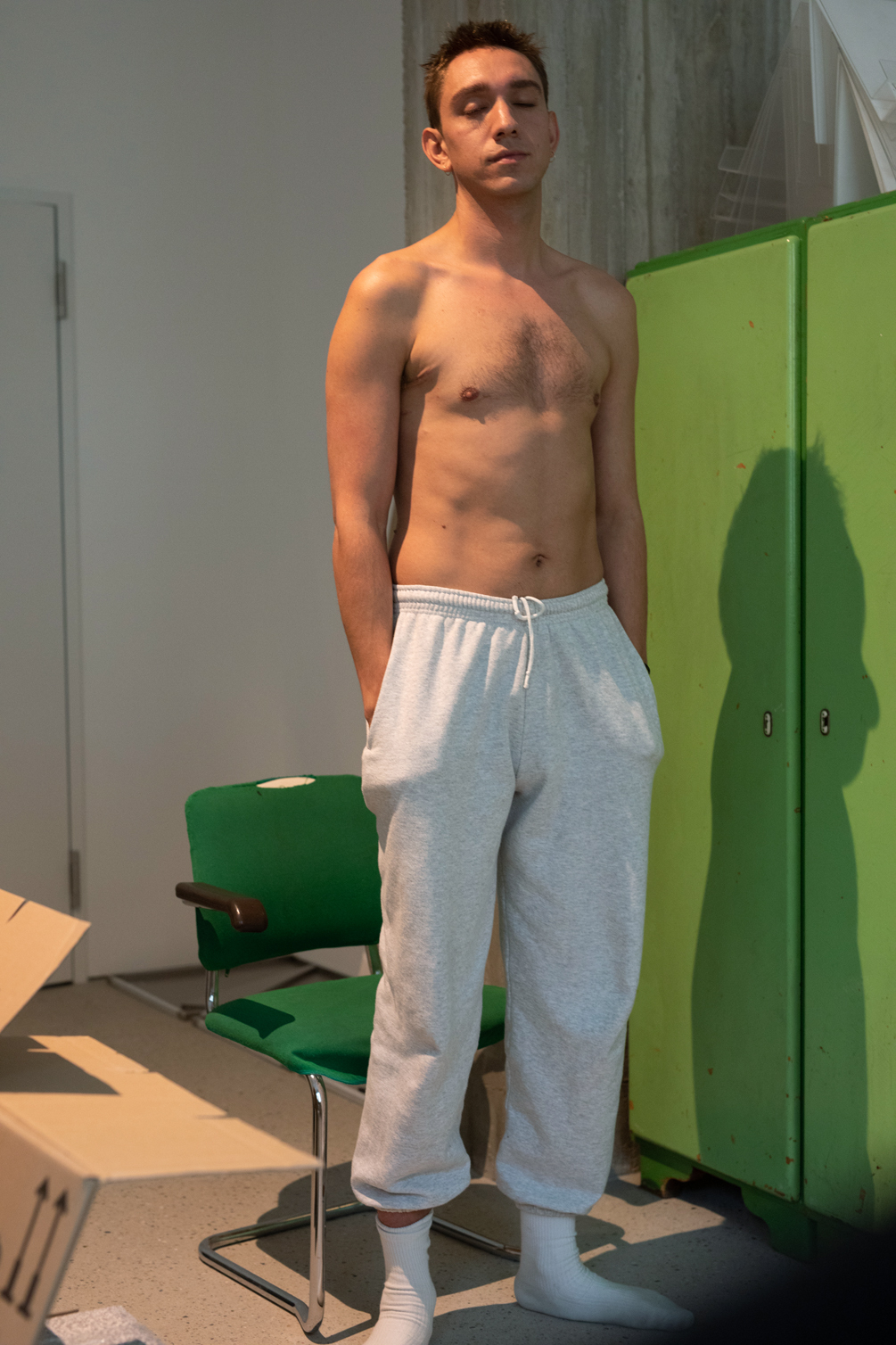
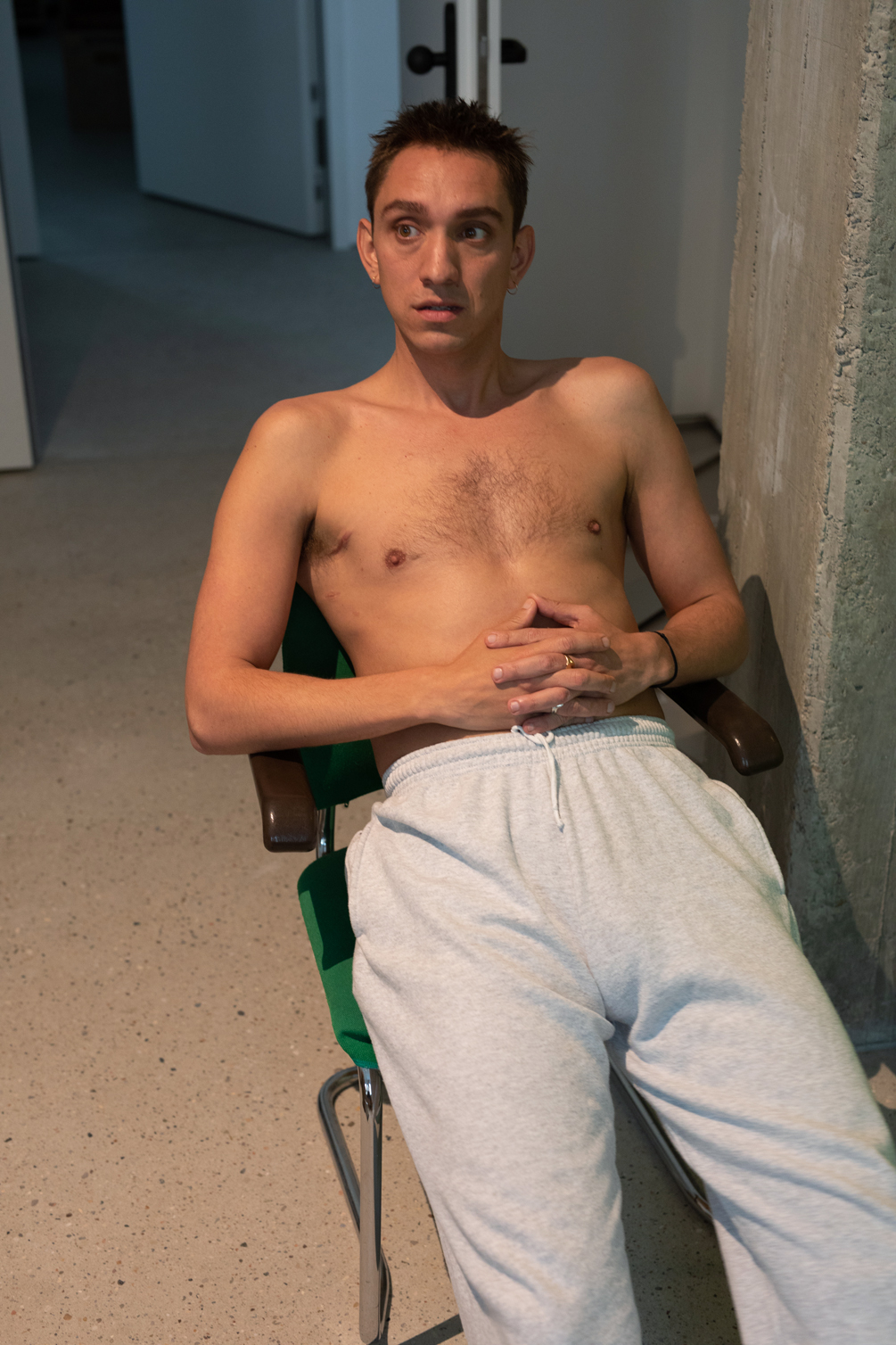
Are you single or in a relationship now? Single. I had a really good date the last time I was in America. But then I’m, like, not back in America for a few weeks. And this is where the wild imagination comes in. Like [in my mind] we’ve already gotten into a committed relationship and broken up in the time that we haven’t seen each other. It’s chaos [Laughs].
Have you had many long-term relationships? Yes I have. I’ve had two. My last one that ended in 2019 with Mr. Musical Theater was probably my most serious.
How long were you guys together for? Not actually that long, like two years. It was the most emotionally serious, I would say. The rest were in my twenties and a bit more, I dunno, flings.
Do you find dating challenging being so Googleable and well known? Depends on how you look. I’m not in my life here in London, the stuff that I’ve done with the band and any kind of success I have, hasn’t like made me a tabloid person. There isn’t that interest in my life. Which is nice. So the band stuff can definitely be like an asset, but I don’t know, dating is hard. I joined Raya over lockdown because I spent the first few months of lockdown messaging every ex I’ve ever had just being like, “Hi, hey, do you miss me?” So I joined Raya, and it was terrible. It was really bad. Like my ability for any chat or any kind of sense of humor I was trying to convey. It just didn’t work. So I’ve gone back to like real-life.
Do you use apps like Grindr? So I have used Grindr in the past, but not anymore. I think that app is not good for me. For an app that’s meant for it to be casual and fun and meant for connecting people, it makes me feel lonely and unattractive.
So you prefer a real-life meeting? Yeah. If I say I’m single enough in the press, then something’s gonna happen.
Your DMs will start filling up. We’ll help you get the word out. What is your relationship to fame? Do you seek it or do you avoid it or do you negotiate your way through it? I love observing fame. Like, I’m going to Cannes on Friday. The film we’ve made has gotten in and I am so excited to be there and just enjoy the show of it all. In terms of participating, I don’t know how to do it necessarily, but I do enjoy performing. I’m a Gemini and there’s definitely a side of me that’s like, “Don’t look at me, look at me.” I noticed that in myself. That is mainly just like playing gigs. When it’s just fame without a purpose, without me actually being there to play a song or to sing, I don’t know how to do it, but I love a show.
I interviewed Charli XCX for our last issue, and she’s very similar in how she used to see fame. But now she seems to be very into embracing the fame monster because she realized she’s really good at it, and she’s a smart person, so who better to be famous in a world of vapid celebrities than someone with talent and a brain? She is one of the most mind-bendingly intelligent people. I’ve never met her, but I was watching her do an interview for Zane Lowe, and the stuff she was saying, she was talking about how radical it was on [on her current] record — because she’s known for being a songwriter — that she’d taken pitched songs. That was fucking radical because she was like, “I’m gonna do this,” and lean into being this famous pop star. She was like, “Now I’m gonna go for it. It might upset some of my fans, but I’m gonna do it.” I thought it was the coolest thing. I love her.
You spoke about playing the song “Hideous” to your mom. Have you played the whole album to your family and friends and what has been the reaction so far? It’s been good. It’s been really good. For my parents, like, I bring up mom and dad a lot on this record and it is about a lot of childhood stuff, so when I first played it, I was like, “how are they gonna” — but it’s been really good. They’re always gonna be proud of me. And they’ve also given me some scathing reviews in the past.
Really? [Laughs] Yeah. Like after a show: “not your best son, very proud of you, but not your best.”
You must appreciate that on some level, right? Cause not everyone’s gonna tell you the truth, like your family and friends will? I was furious. How fucking dare they! But they said they love the record, and I believe they mean it.
Who are your heroes? My heroes growing up were people like Buffy the Vampire Slayer, female rage. Sarah Michelle Gellar as Buffy, Jamie Lee Curtis in Halloween, Sigourney Weaver, Carrie White, Sissy Spacek, and then Romy kind of is my hero. She’s my muse, she’s also my sister, and my partner, so Romy and Jamie are my heroes.
I don’t really talk about recovery so much anymore, because I was super open about it in the beginning because I hadn’t figured out how to do it. And I think a part of me thought it made me a little bit special and different [Laughs]. I’d meet people for the first time, and I’d be like, “Hi, I’m Oliver and I don’t drink. I don’t use anything.” But now I’m a lot more private. But I have lots of recovery heroes, people I’ve met in 12-step meetings. I think a recovering addict is one of my favorite kinds of people. They’ve experienced quite a lot, and they often have a really good sense of humor.
One of my friends is in recovery, and she took me to the friends and family meeting, and I heard the funniest stories. It was amazing. It was a cross between like The Moth and stand-up comedy. It’s unlike anything. It’s self-deprecating. It’s that whole Joan Rivers thing of her, like coming out the day after her husband had committed suicide. Being able to find humor in devastation. I think it’s brilliant.
Who was the last person to make you cry? I cried last week [Laughs]. But it was no one’s fault. I cried because my shows got postponed because one of my bandmates got Covid, so it’s his fault! He made me cry [Laughs]. I went into this huge public bathroom. That was really echoey.
Who was the last person to make you smile? I smiled in this interview.
Besides this interview? Wolfgang. I came into that shoot being like a real fanboy and thought he was gonna be quite a serious person, which he is, but he’s also got a very good sense of humor, which I wasn’t expecting. And so, yeah, with Wolfgang, there were lots of LOLs.
Where are you happiest? With people. I’m happiest in company, which I have felt a little bit embarrassed saying in the past, because I had thought I was more of a lone wolf, happiest in my own company. But I have learned especially in the past couple of years that I really enjoy people and I need to be around people. I get a lot of my energy being around my friends, and being in the sea. I love being in the water. I love swimming.
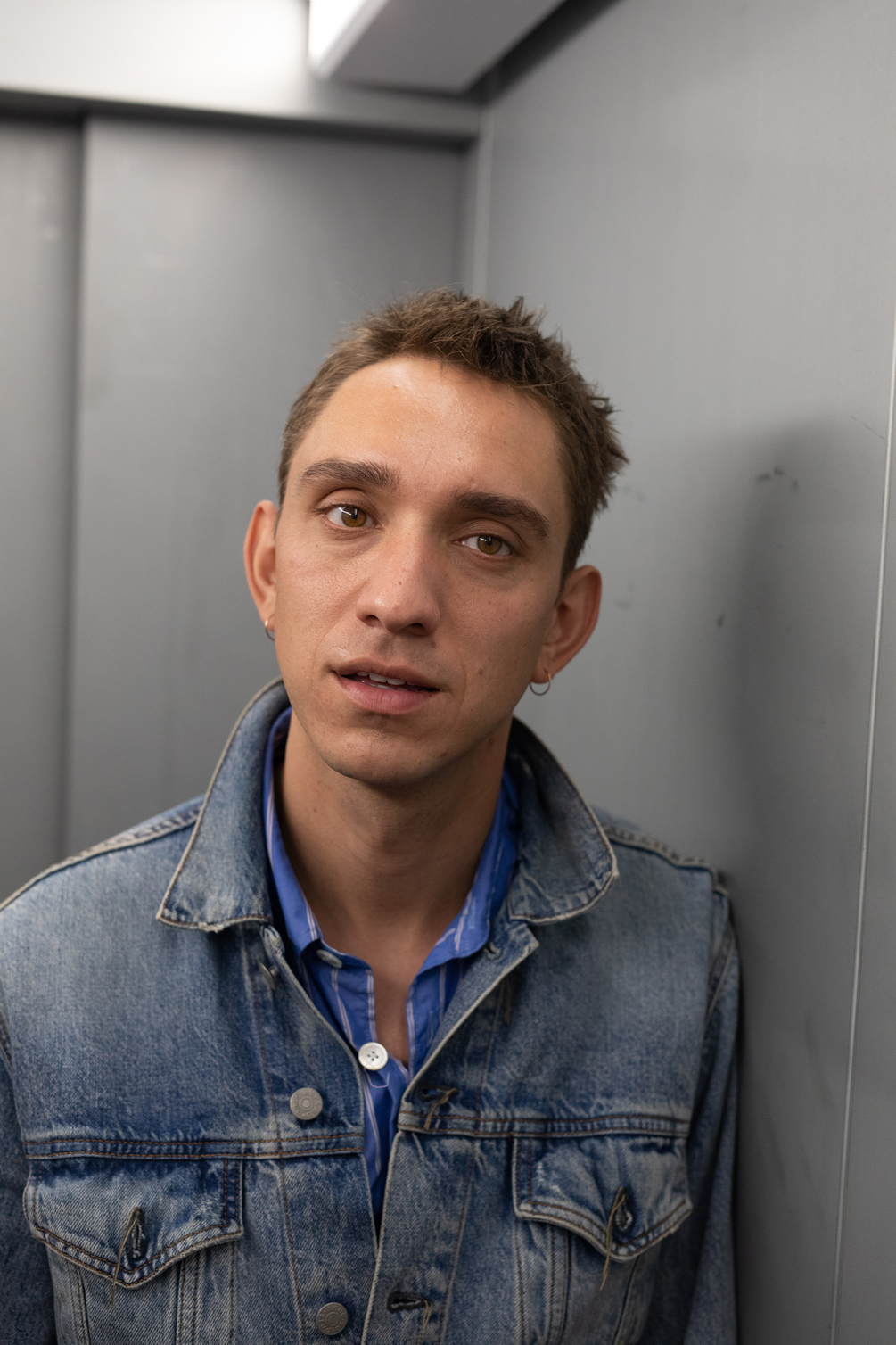
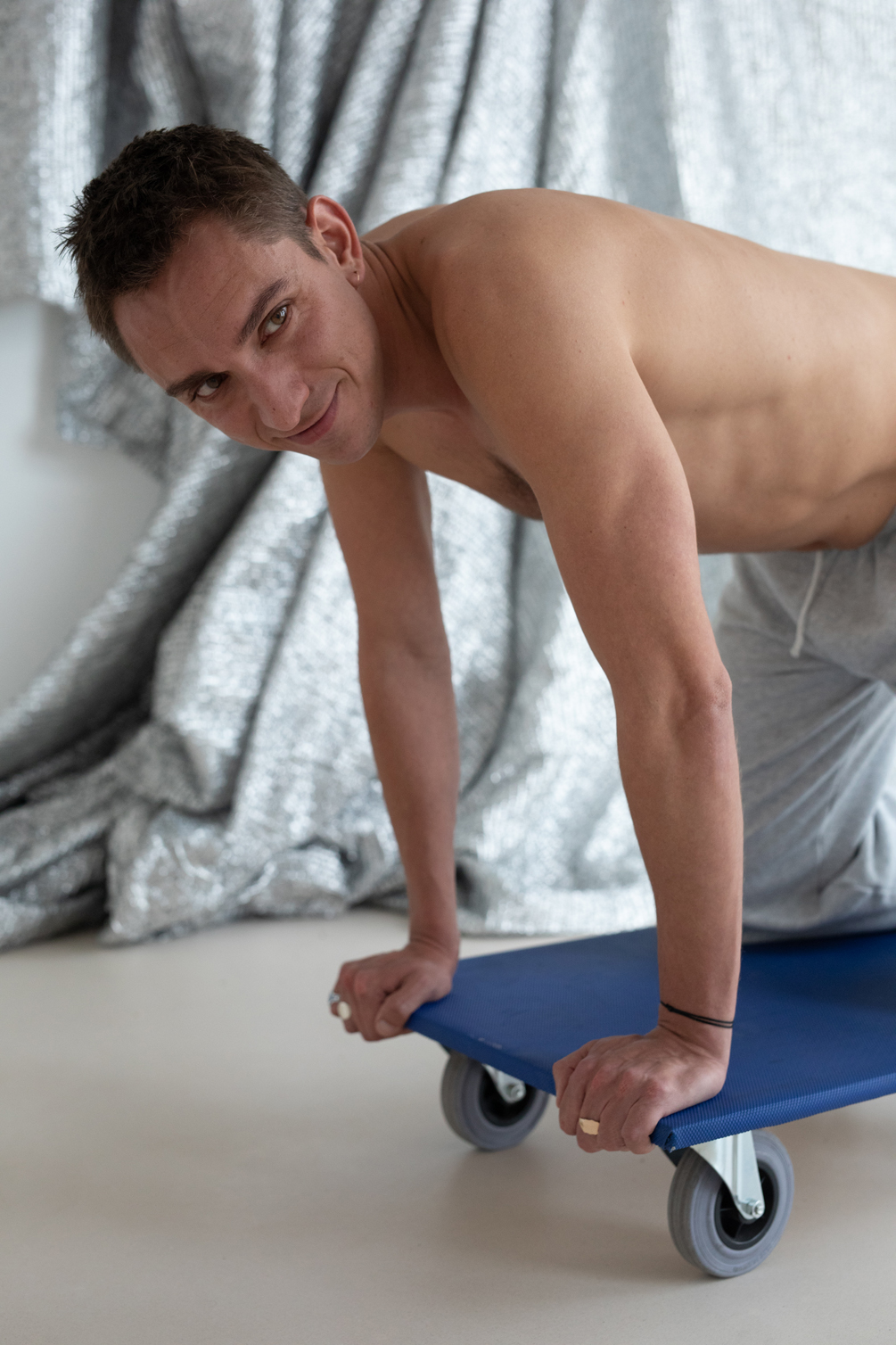
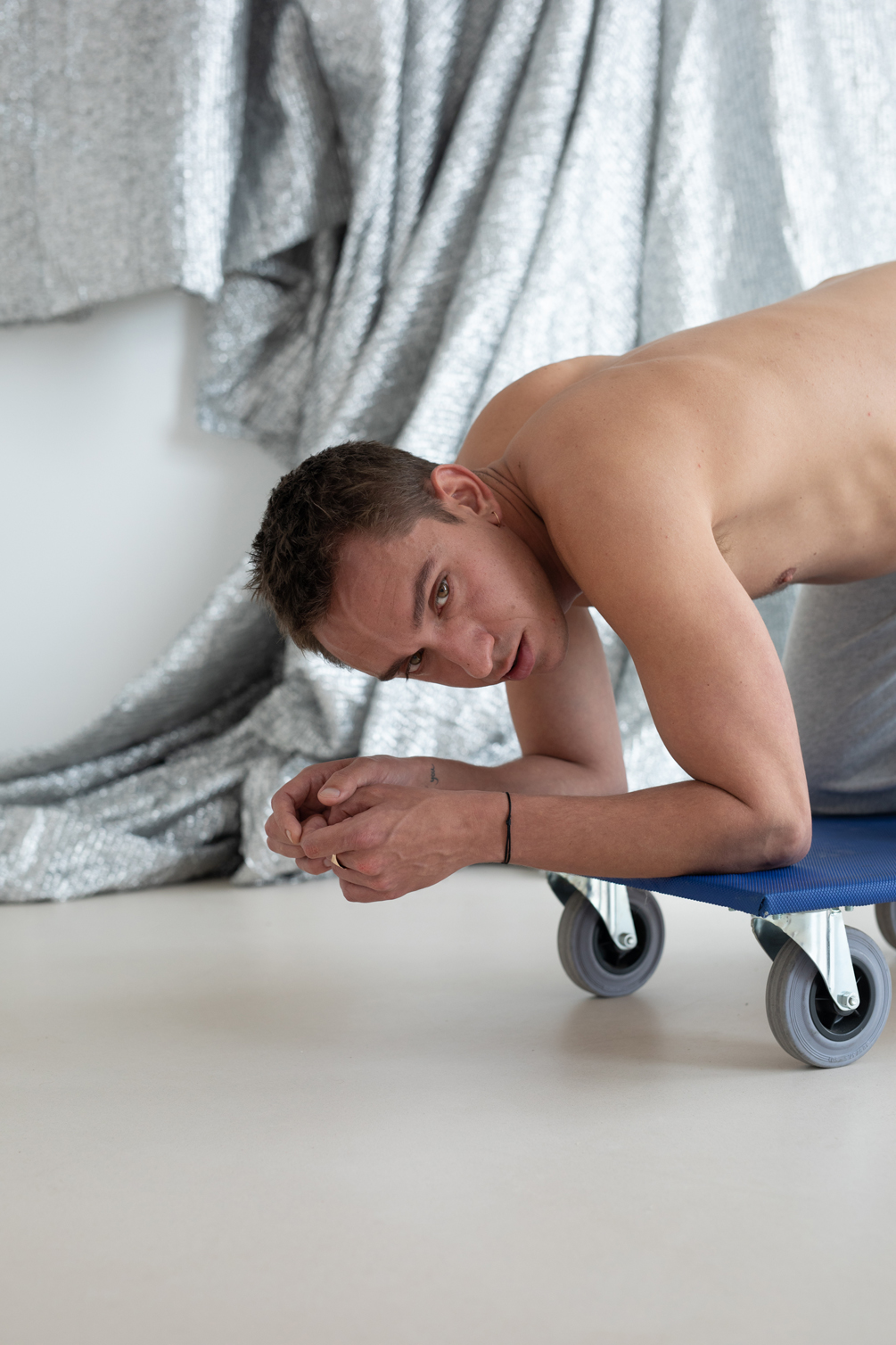
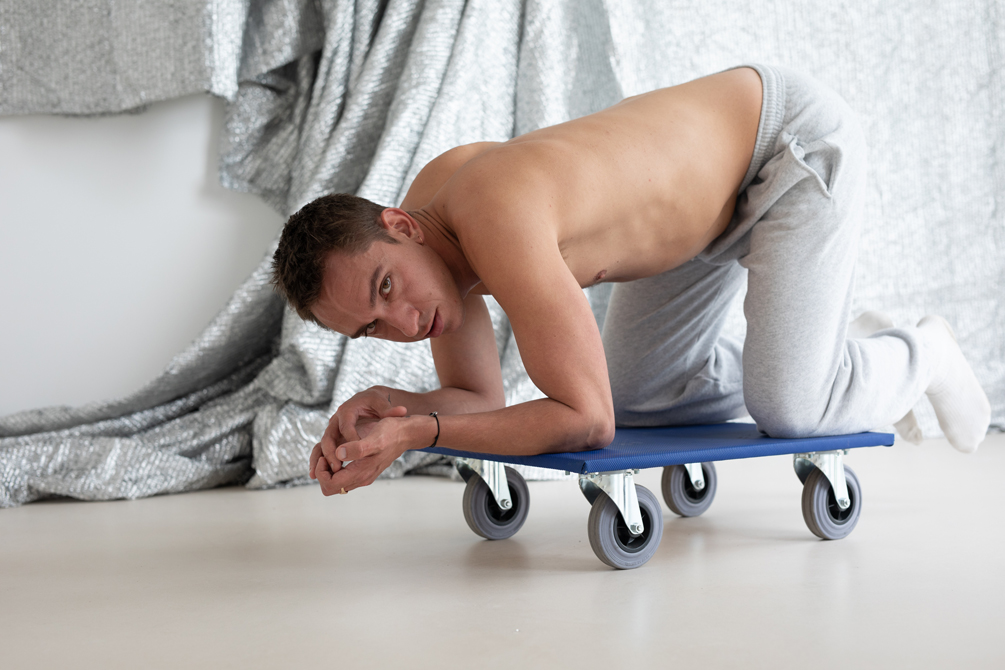
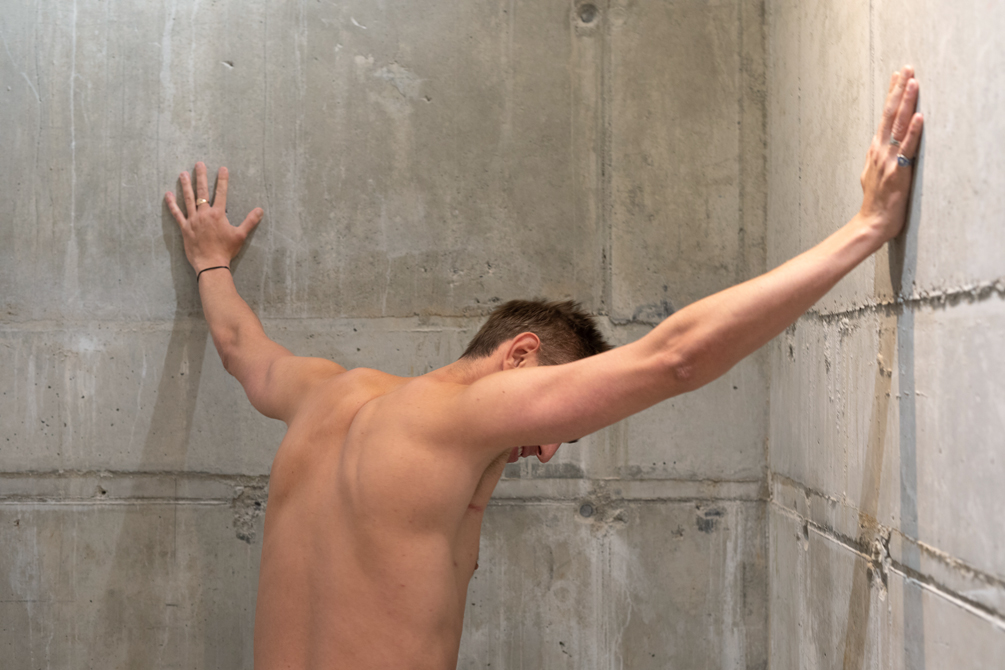
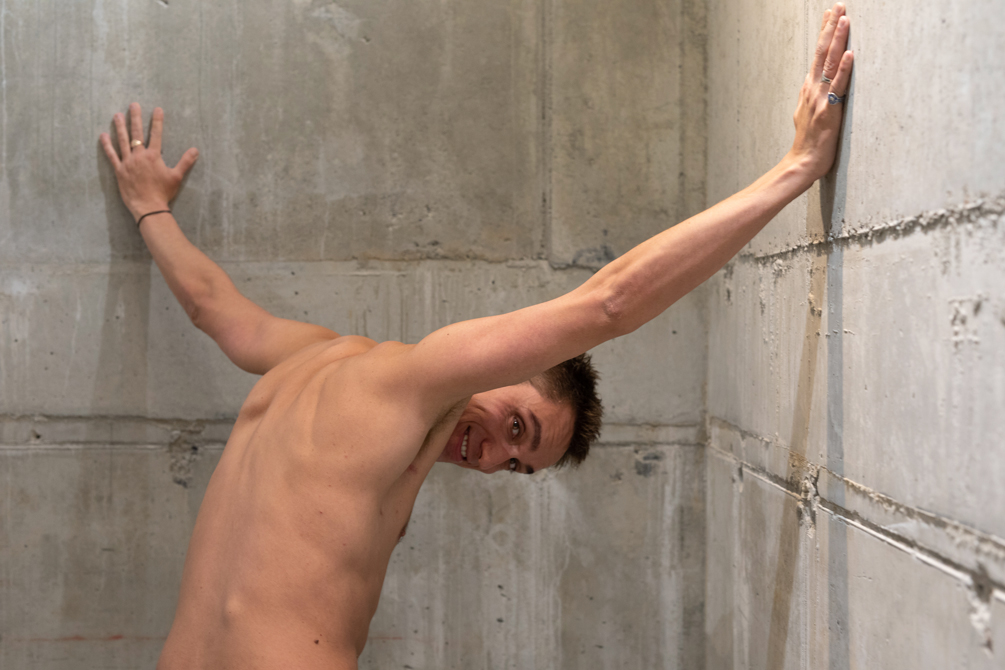
This story was printed in GAYLETTER Issue 16, get a copy here.